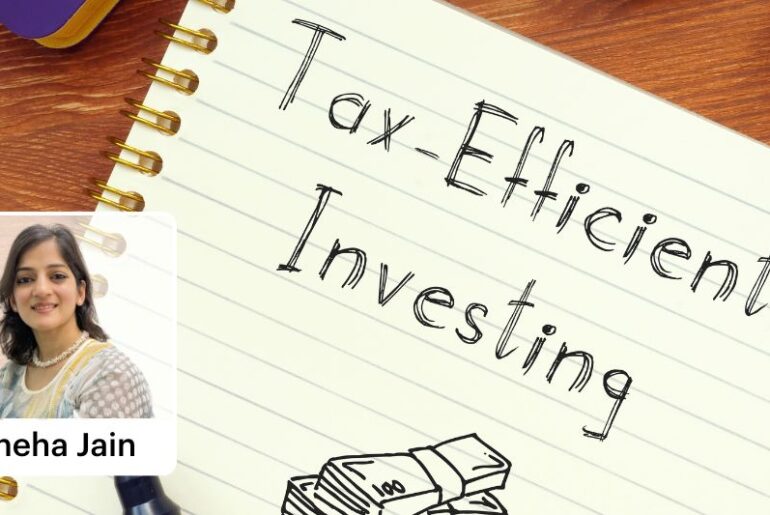Last Updated on May 25, 2022 by Neera Bhardwaj
Medical emergencies never come announced. Taxing that they mentally are, emergencies could also completely derail your finances and planning. And that is why having medical insurance is paramount.
A major percentage of India’s population does not have medical or health insurance. They end up having to depend on savings or borrowings in times of medical emergencies. This is perhaps because people are not completely aware of the benefits of investing in medical insurance, one of which is the provision to avail tax deductions under Section 80D of the Income Tax Act.
If you are wondering what this is, then we have you covered. Here is a quick guide to Section 80D of the Income Tax Act.
Table of Contents
An overview of Section 80D
The Section 80D of the Income Tax Act allows you to claim a tax deduction from your total income for premiums on medical insurance, top-up health plans, or even critical illness insurance plans. You can avail this deduction on your personal health insurance plan as well as plans you buy for your dependents – spouse, children, or parents.
It’s important not to confuse Section 80D with Section 80C, which also allows tax deductions. In fact, you can avail benefits of Section 80D on top of the deductions you claim under Section 80C.
Eligibility under Section 80D
Health insurance can be purchased for self or dependents, like your spouse, children, or parents. If you are a taxpayer and pay medical insurance premiums for the aforementioned parties or have medical expenses for senior citizens, then you are eligible for deductions under Section 80D.
The expenses which qualify for deductions under Section 80D are:
- Premium paid for medical insurance for self or dependents, in any cashless mode.
- Expenses incurred for preventive health check-ups.
- Medical expenses incurred for a senior citizen (aged 60 or above) are not covered under an insurance scheme.
- Payments made to Central Government schemes related to health or others.
Only an individual or a family can claim deductions Section 80D. Other tax-paying entities like a company cannot claim these tax deductions.
How many deductions do you get?
The maximum deduction that you can claim as an individual under Section 80D is Rs. 25,000 per financial year. The deduction limit for senior citizens is Rs. 50,000 per financial year.
Here are the deductions that you can avail under this section:
| Party | Premium paid for self, family, children (in Rs.) | Premium paid for parents (in Rs.) | Deduction under Section 80D (in Rs.) |
| You and your parents (under 60 yrs) | 25,000 | 25,000 | 50,000 |
| You and your parents (above 60 yrs) | 25,000 | 50,000 | 75,000 |
| Members of your family | 25,000 | 25,000 | 25,000 |
| You, your family and your parents (above 60 yrs) | 50,000 | 50,000 | 1,00,000 |
| In case you are non-resident | 25,000 | 25,000 | 25,000 |
To elaborate on the above
You, as an individual taxpayer, can claim:
- A deduction of up to Rs. 25,000 for insurances made for you, your spouse, or your dependent children.
- An additional deduction for your parents’ insurance up to Rs. 25,000 (if your parents are below 60 yrs of age) or up to Rs. 50,000 (if your parents are above 60 yrs of age).
- A maximum deduction of Rs. 1,00,000 if you and your parents are above 60 yrs and have medical covers.
Your family can claim:
- A deduction of Rs. 25,000 if the family purchases a mediclaim for a family under 60 yrs.
- A deduction of Rs. 50,000 if the insured member is above 60 yrs.
If your policy is valid for more than a year and you pay a lump sum premium in a single year, you can claim a deduction under Section 80D. You can calculate the deduction by dividing the lump sum premium by the years of validity.
Preventive health check-ups under Section 80D
The Central Government introduced the preventive health check-up deductions in 2013-2014 to increase health proactiveness and encourage good health practices. Preventive health check-ups help identify illnesses and risk factors in the early stages so as to effectively check them from progressing into anything serious.
Preventive health-checkups account for Rs. 5,000 (up to the upper limit of Rs. 25,000 or Rs. 50,000) deduction under Section 80D. You can claim this deduction even for cash payments or have your spouse, dependent children, or parents claim it.
The best medical insurance for you
There is a medical insurance policy out there for everyone. And some medical insurance policies work better for everyone with regards to deductions under Section 80D. Here are a few things you can take into consideration before buying the most suitable medical insurance for you:
- You should choose an insurance that accounts for a sufficient percentage of coverage for hospital room rent and other such expenditures.
- Your premiums should go to specific Central Government medical insurance schemes or any other insurance provider approved by the Insurance Regulatory and Development Authority of India.
- Do check the pre-hospitalisation and post-hospitalisation clauses thoroughly before purchasing your policy.
- Check details of daily cash limits that many policies offer to cover for extra expenses such as lab tests, etc.
- Some medical insurance policies give additional benefits like yearly health evaluations and various tests, which could be a big plus.
- Your policy should allow for cashless payments and a cashless claim settlement with hospitals around your city. You must check the list of hospitals covered by the insurance.
- Do check for inclusions of alternative therapies and medications like Ayurveda that can be beneficial for you.
- After the pandemic, many insurance policies now cover for Covid. Do check for details such as Covid coverage, daily cash limits, expense limits, etc.
- Do check for your insurance provider’s clause for a no-claim bonus which gets added to your coverage for all the years you don’t claim it. This could provide an extra layer of security in times of crisis.
Conclusion
Medical insurance is essential to ensure security if you or your family ever face a medical emergency. To find the perfect medical insurance, you must do thorough research on all the policies available in the market. Plus, what’s better than being able to avail tax deductions on top of the security. Reach out to your financial advisor for more information on Section 80D and deductions.





